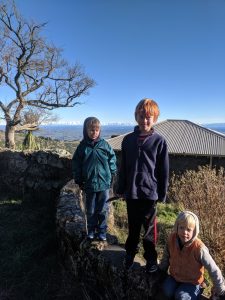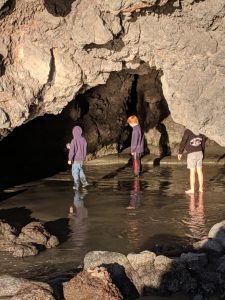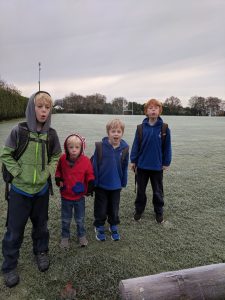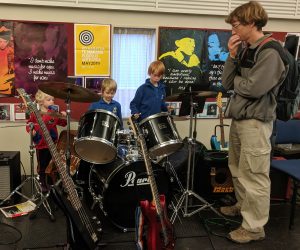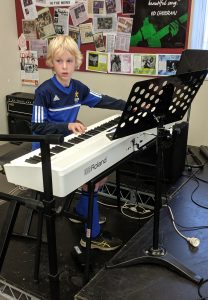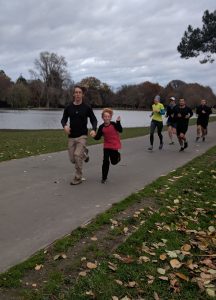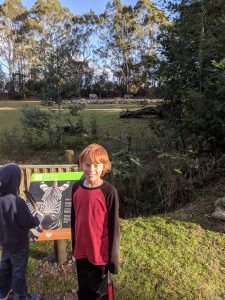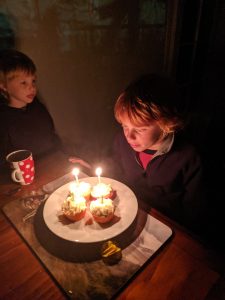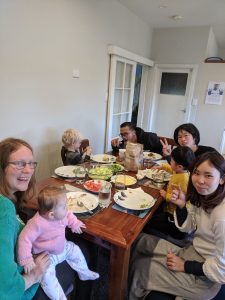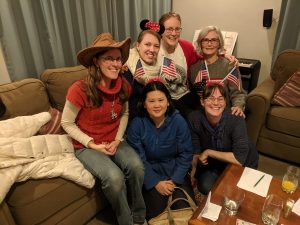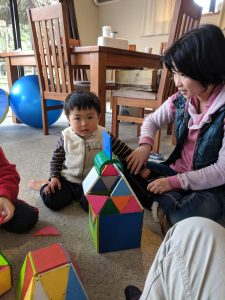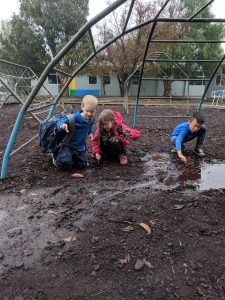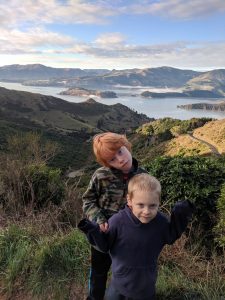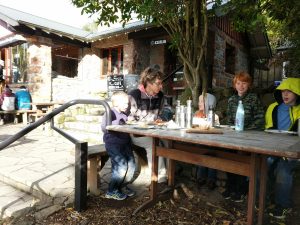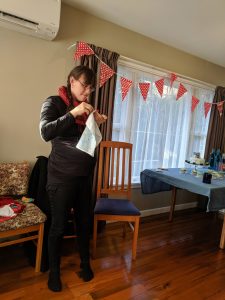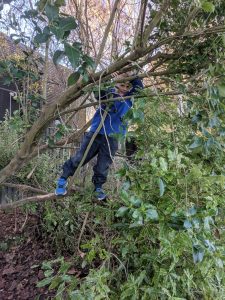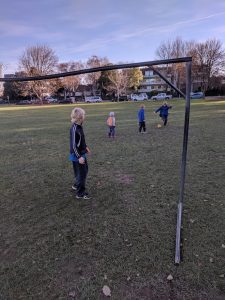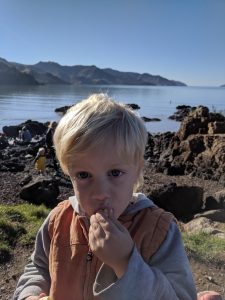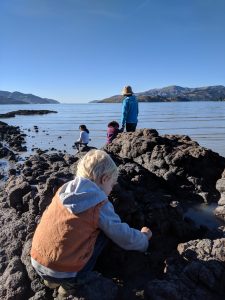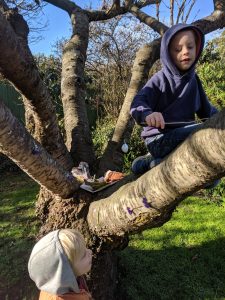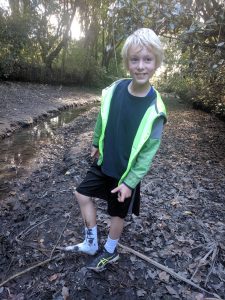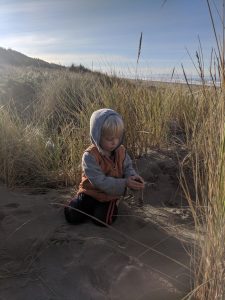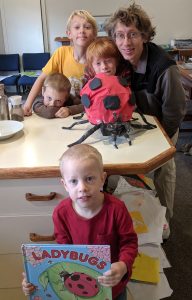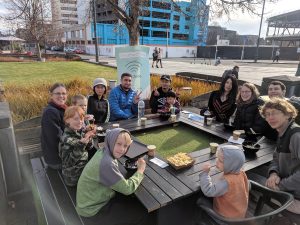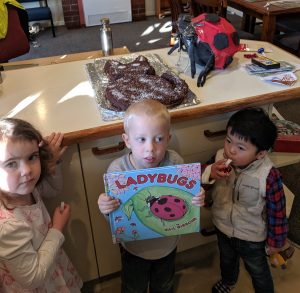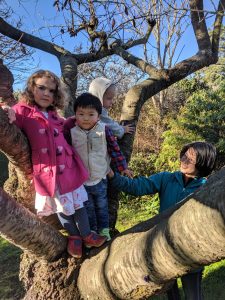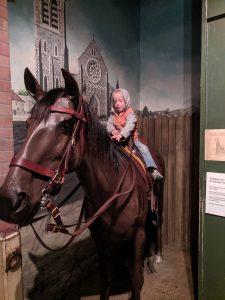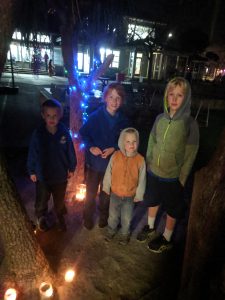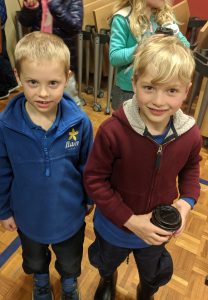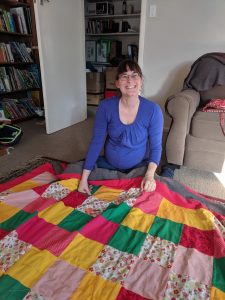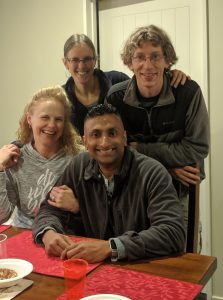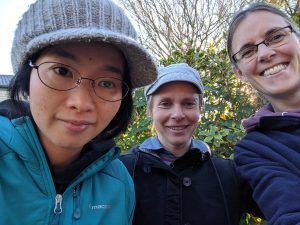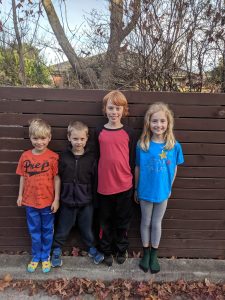There’s a long list of evils associated with Christianity that don’t make any sense to me the more I learn about Jesus. There have been abuses done to children, endorsement of racism, annihilation of native cultures, oppression of women, and justification of wars. Then there are more specific abuses of power done directly to those I love. Multiple instances recently where the church has defended the abuser instead of the abused.
My husband teaches college students and has some insight into the next generation. He says that many young adults these days don’t want anything to do with Christianity because they don’t see it making people better, but more judgemental, even hateful. He’s even said a few times that it doesn’t seem like my faith has been good for me.
I have struggled with this a lot, because my loyalty to Jesus is stronger than my loyalty to anything else. It pains me deeply when his name is dishonored, by the church and by me. It pains me that people I love are understandably alienated by these evils. I can’t claim to love Jesus without loving his people. But as a faithful church attender, my whole adult life, I am increasingly heartbroken over the compromises with our culture that I see growing worse in American churches.
I’ve been searching the Scriptures, desperate to figure out how to love the Church without endorsing or excusing such evils, or compromises, and am finding there’s plenty of help to be found.
Not Surprised
When my kids were very young I didn’t read much besides the gospels. I found that when I was reading the gospels the hardships of life were not surprising. I enjoyed The Message because of the joy that I felt from the paraphrase. It was here that I first encountered some clear answers that addressed my frustrations with the church.
“Be wary of false preachers who smile a lot, dripping with practiced sincerity. Chances are they are out to rip you off some way or other. Don’t be impressed with charisma; look for character. Who preachers are is the main thing, not what they say. A genuine leader will never exploit your emotions or your pocketbook. These diseased trees with their bad apples are going to be chopped down and burned.
Knowing the correct password—saying ‘Master, Master,’ for instance—isn’t going to get you anywhere with me. What is required is serious obedience—doing what my Father wills. I can see it now—at the Final Judgement thousands strutting up to me and saying, ‘Master, we preached the Message, we bashed the demons, our God-sponsored projects had everyone talking.’ And do you know what I am going to say? ‘You missed the boat. All you did was use me to make yourselves important. You don’t impress me one bit. You’re out of here.’” (Matt 7:15-23)
I had been impressed with charisma, and emotionally manipulated by a preacher at this point. It hurt to lose trust. But Jesus was not surprised. He warned of this very thing.
When I would tell my friends overseas last year about the abuses of power that had left me wondering who I could trust in the church, they were not shaken or surprised at all either. I came to learn that it was largely because they were much more grounded in the Bible as a whole than I was. As I enjoy the Bible as a whole now I see that God consistently warns about false teachers who oppress others throughout the whole of history. He is definitely not surprised. And yet he never turns an indifferent blind eye to this power hungry injustice in the name of religion. God’s heart for justice gives us plenty of guidance for dealing with injustice.
Jesus shows us here that we can tell who is trustworthy by their fruit, what they do, not what they say. Sometimes it may take a long time to see, but Jesus promises that no one can hide behind a religious mask forever,
“Be on your guard against the yeast of the Pharisees, which is hypocrisy. There is nothing concealed that will not be disclosed, or hidden that will not be made known. What you have said in the dark will be heard in the daylight, and what you have whispered in the ear in the inner rooms will be proclaimed from the roofs.” (Luke 12:1-3)
When I consider all the injustice that’s stained the church I am comforted to know that no one can hide before God. Yet Jesus isn’t trying to comfort here, but to warn us. He persistently warns against this yeast, of the Pharisees, Sadducees, and Herod three times in the gospels. Yeast was associated with corruption in his culture. Paul quotes a proverb, perhaps even idiom, of his day in Galatians 5:9, “A little yeast works through the whole batch of dough,” to call out legalistic heresy. I don’t think they’re just warning us about trusting false teachers, they understand how false teaching penetrates a community, or nation, like yeast through dough.
Collective Sin
The idea that sin is like yeast permeating a community, not just an individual, has very different implications. The more I read the Bible, the more I sense that everything is much bigger than me, that we are a people, not just individuals. That even our sin is collective, and that some of our thinking on this in America has really gotten off.
At the very end of our time in New Zealand a good friend lent me a book on prayer by an American that had helped her greatly. While I valued the content a lot, I couldn’t help but notice the obsession with ourselves and our feelings that I find hard to escape in American Christianity. My friend said that the vulnerability really helped her, and it was good to see that we can learn from each other. But I found it so refreshing to experience Bible teaching that was more about God than us in Australia and New Zealand. I sense that this obsession with ourselves is yeast in American churches that Jesus really wants to free me from.
The gospel message I have heard in American churches is that I am a sinner, but Jesus loves me and forgives me. Still, I am at the center in this message, as are my feelings. It has often felt like an emotional rollercoaster, something like this: the worse I feel about myself the more thankful I can be for forgiveness. But I fear we’ve crashed into a heresy that Paul warned us about, “…Shall we go on sinning so that grace may increase? By no means! We died to sin; how can we live in it any longer?” (Romans 6:1-2)
The truth of the gospel is that Jesus came to free me from sin that torments me, sin that is much bigger than me and my mistakes. It’s parallel to God rescuing the Israelites from slavery in Egypt. They were helpless to save themselves from their oppressors, but God rescued them with a mighty show of his power. This is the kind of rescue Jesus made in his life, death, and resurrection.
When it’s simply about me being forgiven, I miss out on the freedom from sin. This heresy may be what my husband has been talking about when he’s pointed out that my faith was not good for me. I was stuck in constant, and yet unfruitful, guilt. It may also be why younger generations are observing that church doesn’t necessarily make us more loving people. I’ve seen churches compromising to try to sell themselves, but by trying to be more relevant we’ve become more and more focused on ourselves. And less and less focused on how we are treating others.
While churches acknowledge our sin in general, there has not been an expectation of actual confession or freedom. I think we have a dangerous culture of dismissal. When I have attempted to confess to friends and family, even about hurting my own children, I’ve been told if I’m feeling bad about it, I’m probably fine. But I was not fine. I needed help.
Help from Jesus
The idea that “God helps those who help themselves” has deep roots in our American culture of self-sufficiency, but not in the culture or message of the Bible. The Laura Ingalls Wilder books quote it often and show how deeply rooted this idea is in American Christianity. But what I have learned from reading Scripture is that God helps those who ask for help, or quite simply those who need help.
If I could share just one story about Jesus to show others his character it would definitely be this one:
“Soon afterward, Jesus went to a town called Nain, and his disciples and a large crowd went along with him. As he approached the town gate, a dead person was being carried out—the only son of his mother, and she was a widow. And a large crowd from the town was with her. When the Lord saw her, his heart went out to her and he said, “Don’t cry.”
Then he went up and touched the coffin, and those carrying it stood still. He said, “Young man, I say to you get up!” The dead man sat up and began to talk, and Jesus gave him back to his mother.
They were filled with awe and praised God. “A great prophet has appeared among us,” they said, “God has come to help his people.” (Luke 7:11-16)
Jesus doesn’t help us because we deserve it, but because he loves us. The more I read the Bible I see that the whole thing is about this compassionate deliverance, based in God’s goodness, not ours, hundreds of times, in a myriad of ways. It is his kindness that leads to repentance.
A couple chapters earlier we see Jesus calling Simon, whom he later named Peter. Jesus tells Simon, who is a fisherman, to let down his nets, even though he hasn’t caught anything all night. Then Jesus miraculously fills their nets with fish to the point of breaking. And Simon responds appropriately, “Away from me, Lord; I am a sinful man!”
This is only the beginning for Peter. We go on to read much about his slow transformation, which is in large part freedom from his own ego. Jesus frees Peter to live for others, not himself.
On Pentecost, when the Holy Spirit comes in power, Peter preaches to a crowd of thousands, from all nations. The people are cut to the heart and ask what they can do. He tells them plainly to repent, be baptized, and receive the gift of the Holy Spirit. But the very end of this scene has caught my attention. It says,
“With many other words he warned them; and pleaded with them, ‘Save yourselves from this corrupt generation.” (Acts 2:40)
The goodness of God sheds light on our sinfulness, not only our individual sins, but the collective sin we’re caught up in too, and it frees us from it. I have experienced this kind of help most recently through our sabbatical. Before we left for Australia I was dangerously embittered towards the church, anxious about the future, and had no will to live.
But the undeserved kindness of God has been freeing me, partly through the chance to see our nation from the outside, largely through the goodness of his people pointing me back to the Scriptures. Now I have far more reason to be anxious, we’re meant to be moving across the country in a few months, while the world is reeling from a pandemic. But I want to live. I want to care for my kids and my husband, and whoever else I get to. I want to see what God will do in his power to help. I want to be part of reformation in the Church, because I agree with Peter that we need saved from the yeast of this corrupt generation.
Repairing through Reformation
When Midwesterners think of reformation most probably think of Martin Luther and the Protestant reformation. But there have been many, many reformers throughout history for us to learn from. St. Francis of Assisi is one of my favorites, from 13th century Italy. But the past century has been full of reformation too. Deitrich Bonhoeffer, Martin Luther King, Jr., Richard Foster, John Wimber, and Jonathan Wilson-Hartgrove are a few who encourage me that God is still constantly reforming his church today. And all but one of those are Americans who have not abused power over others, but lived to serve, like Jesus.
When I look for connections between all the reformers I’ve begun to learn from there is only one. They are all transformed radically by the words of Jesus. So, we turn to his words for practical ways we can reform the church today.
Given what I learned about the collectivist culture of the Bible in Misreading Scripture Through Western Eyes, I hear him holding us responsible for each other more than we might be comfortable with in American culture.
In Matthew 18, right after Jesus brings in a child to answer the question of who’s the greatest, he says,
“But if anyone causes one of these little ones who believe in me to sin, it would be better for him to have a large millstone hung around his neck and to be drowned in the depths of the sea.
Woe to the world because of the things that cause people to sin! Such things must come, but woe to the man through whom they come!” (Matthew 18:6-7)
I am just beginning to see how much this flies in the face of American culture, that we are held responsible for causing others to sin. What about boundaries? I think we’ve gone too far to the extreme, making it a law, like gravity, that we’re only responsible for ourselves when there’s a both/and here. Our extreme boundaries would likely sound very foreign to Jesus in his culture of collectivism, built upon relationships.
A little later he goes on:
“If your brother sins against you, go and show him his fault, just between the two of you. If he listens to you, you have won your brother over. But if he will not listen, take one or two others along, so that ‘every matter may be established by the testimony of two or three witnesses.’(Deut 19:15) If he refuses to listen to them, tell it to the church; and if he refuses to listen even to the church, treat him as you would a pagan [someone who does not believe].” (Matthew 18:15-17)
Not only does Jesus hold us responsible for causing others to sin, he holds us responsible for calling out sin. Essentially we are responsible for the community, not simply for being as good as we can be individually. He expects a healthy family to regularly confront, confess, repent, and forgive, to keep the community safe for everyone.
Free and independent Americans have a hard time doing church this way, especially nice Midwesterners. We don’t like to be told what to do, and we don’t want to be responsible for telling anyone else what to do either. But when community accountability breaks down, the weak and vulnerable are not safe. I’ve seen this play out recently in churches, and on school playgrounds, and universities. Our Australian friends pointed out how obsessed Americans are with our “rights,” sometimes at the expense of the community.
The more I read the Bible the more I long for God’s standards on how we treat each other. His heart to “purge the evil from among you” comes up often in Deuteronomy, but can’t be written off as though it was before the grace of Jesus. This heart is just as clear in the early church, after Jesus’ death and resurrection. Annanias and Sapphira were struck dead for keeping a little money back for themselves and then lying about it to make themselves look better. Paul expected the Corinthians to expel people for sexual immorality, saying,
“Your boasting is not good. Don’t you know that a little yeast works through the whole batch of dough? Get rid of the old yeast that you may be a new batch without yeast—as you really are.” (1Corinthians 5:6-7)
While Jesus can forgive and free us from anything, his grace is not a cover for sin. We are all affected by this yeast when we turn a blind eye, or simply pass responsibility off on others. I admittedly have no idea what this means practically, but I want to learn.
American Leaders
Jesus teaches us to love our enemies, but he also shows us how to call out people in authority often. A good portion of his interactions are with the abusive religious leaders of his day, who he repeatedly calls hypocrites, or actors.
“Everything they do is for men to see…they love the place of honor at banquets and the most important seats in the synagogues; they love to be greeted in the marketplaces and to have men call them ‘Rabbi.’
But you are not to be called ‘Rabbi,’ for you have only one Master and you are all brothers. And do not call anyone on earth ‘Father,’ for you have one Father, and he is in heaven. Nor are you to be called ‘teacher,’ for you have one Teacher, the Christ. The greatest among you will be your servant. For whoever exalts himself will be humbled, and whoever humbles himself will be exalted.” (Matthew 23: 5-12)
From our time overseas I can tell you that Americans are looked up to for our strength in “raising up leaders.” But I cringe at that because of the ways power is abused so often. Jesus had no tolerance for these abuses of power. He shamed them publically to the point that they killed him.
“While Jesus was teaching in the temple courts…The large crowd listened to him with delight. As he taught, Jesus said, “Watch out for the teachers of the law. They like to walk around in flowering robes and be greeted in the marketplaces, and have the most important seats in the synagogues and the places of honor at banquets. They devour widows’ houses and for show make lengthy prayers. Such men will be punished most severely.”(Mark 12: 35,37b-40)
The truth is we may be punished for the very things that we consider success in America. Here we think bigger is better, but that has not been my experience when it comes to churches. I have heard pastors brag about their impressive buildings, and their nationally known children’ ministries that I felt were actually teaching children greed through bribery. We are too easily convinced that numbers equal success, but I think churches are looking more and more like businesses, or entertainment venues, or even schools than the family of God described in the Bible.
I think we who call ourselves Christians need to hold ourselves more responsible for the health of the Church. It’s not enough to just silently walk away and shake our heads. Yes, Jesus warns us to take the log out of our own eye first. God is ultimately the Judge of each individual, and we are accountable for our own actions. But Jesus teaches us, by his words and his example, that we are also responsible for helping each other in this battle against collective sin.
Yeast Today
I find it fascinating that the three groups Jesus was warning us against are still visible today. The Pharisees of Jesus day were the legalistic ones, of whom Jesus said:
“Isaiah was right when he prophesied about you hypocrites; as it is written: “These people honor me with their lips, but their hearts are far from me. They worship me in vain; their teachings are but rules taught by men.” (Mark 7:6-7)
The Pharisees followed the law flawlessly, but with no real meaningful effect. The whole of Matthew 23 is dedicated to exposing their hypocrisy. It starts with Jesus telling the crowds to do as they say, not as they do. Basically he’s saying listen to the Scriptures they teach, but don’t neglect “justice, mercy, and faithfulness”(Matt 23:23) as they do. They are acting to win the approval of others, it’s all a show.
I see many parallels here with the conservative religious right in our nation today. Many conservative Christians have used the Bible to gain, or maintain, power for themselves, justifying slavery, unjust economics, the oppression women, and immigrants. There are many abuses here that Jesus would undoubtedly call out. But he wouldn’t throw out the Scriptures that they use to abuse.
The second group, the Sadducees, were more worldly and political. They rejected certain Scriptures and oral law, and have some parallels with the liberal religious left group of our day. I believe Jeus would have some words for that side in our nation today too. When the Sadducees question Jesus about a view they fought for he replied:
“Are you not in error because you do not know the Scriptures or the power of God? He is not the God of the dead, but of the living. You are badly mistaken!” (Mark 12:24,27)
I have been saddened by the way that many liberal Christians dismiss the authority of Scripture because it has been abused in the hands of those they have been taught to hate. Those in power will forever stir up dissension to protect their own power, but we must not fall for this yeast any more than the others.
The final group Jesus warns about is Herod, the horrendous political ruler of their nation at the time. I think it’s interesting that he includes him in the warning about yeast, or teaching, that permeates. The truth is we are all affected by the sins of our leaders much more than we want to admit. They set a standard of what is acceptable behavior, representing our people group, they embody us. I was keenly aware of this overseas where it was embarrassing to see that American politics is the favorite soap opera drama for many of our friends. It’s not funny, though, for when they break the bonds of trust, it wounds us all more deeply than we know.
I think if Jesus came to our nation right now he would have the same compassion he did for the people of his time.
“Jesus went through all the towns and villages, teaching in their synagogues, preaching the good news of the kingdom and healing every disease and sickness. When he saw the crowds, he had compassion on them, because they were harassed and helpless, like sheep without a shepherd. Then he said to his disciples, “The harvest is plentiful but the workers are few. Ask the Lord of the harvest, therefore, to send out workers into his harvest field.” (Matthew 9:35-37)
This compassion is the work that Jesus was doing and wants to continue through his Church, that can unite us in reformation today. Demonstrating the goodness of God, made known to us through the Scriptures, sufficient for repentance, to each other is what we can do as his children every day, no matter what storms rage on around us.
